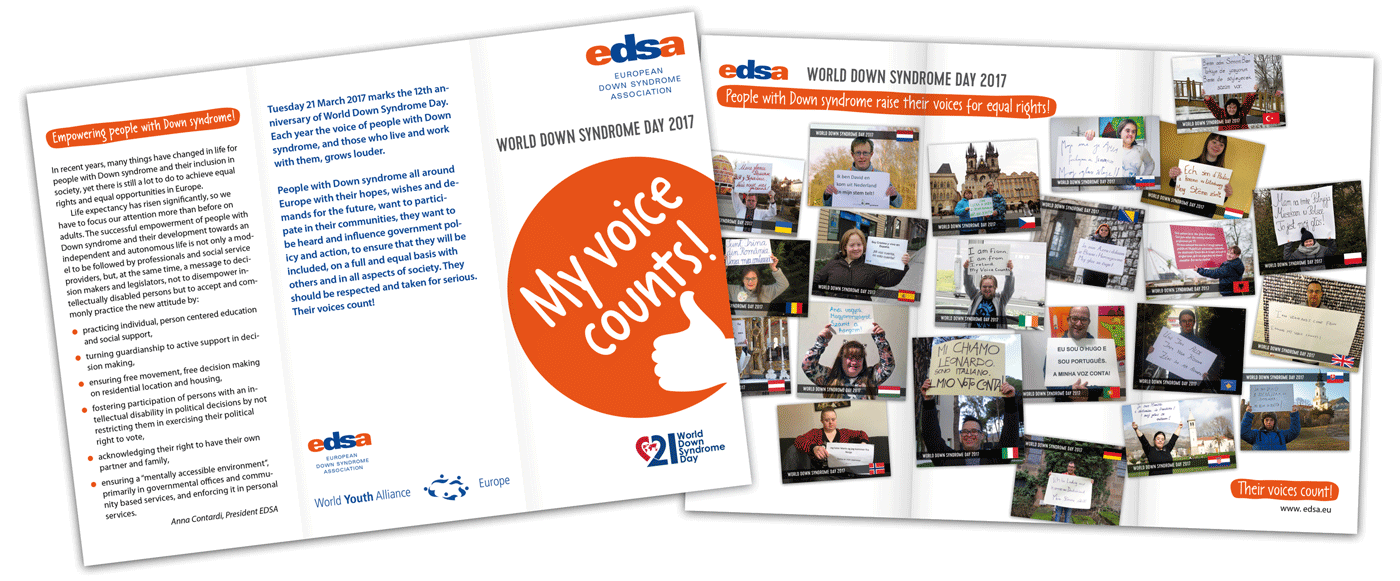The folder “My voice counts” was distributed in the EU parliament on World Down Syndrome Day 2017. We brought the voices of young Europeans with Down Syndrome to Brussels and we hope that their voices will be heard by political leaders. For this publication Anna Contardi, EDSA’s president, wrote a statement “Empowering people with Down syndrome”.
The folder shows the pictures of the participants with DS from European countries, holding their posters with their statement “My voice counts”.
People with Down syndrome raise their voices for equal rights!
Tuesday 21 March 2017 marks the 12th anniversary of World Down Syndrome Day. Each year the voice of people with Down syndrome, and those who live and work with them, grows louder.
People with Down syndrome all around Europe with their hopes, wishes and demands for the future, want to participate in their communities, they want to be heard and influence government policy and action, to ensure that they will be included, on a full and equal basis with others and in all aspects of society. They should be respected and taken for serious.Their voices count!
Empowering people with Down syndrome
In recent years, many things have changed in life for people with Down syndrome and their inclusion in society, yet there is still a lot to do to achieve equal rights and equal opportunities in Europe.
Life expectancy has risen significantly, so we have to focus our attention more than before on adults. The successful empowerment of people with Down syndrome and their development towards an independent and autonomous life is not only a model to be followed by professionals and social service providers, but, at the same time, a message to decision makers and legislators, not to disempower intellectually disabled persons but to accept and commonly practice the new attitude by:
- practicing individual, person centered education and social support,
- turning guardianship to active support in decision making,
- ensuring free movement, free decision making on residential location and housing,
- fostering participation of persons with an intellectual disability in political decisions by not restricting them in exercising their political right to vote,
- acknowledging their right to have their own partner and family,
- ensuring a “mentally accessible environment”, primarily in governmental offices and community based services, and enforcing it in personal services.
Anna Contardi, President EDSA

